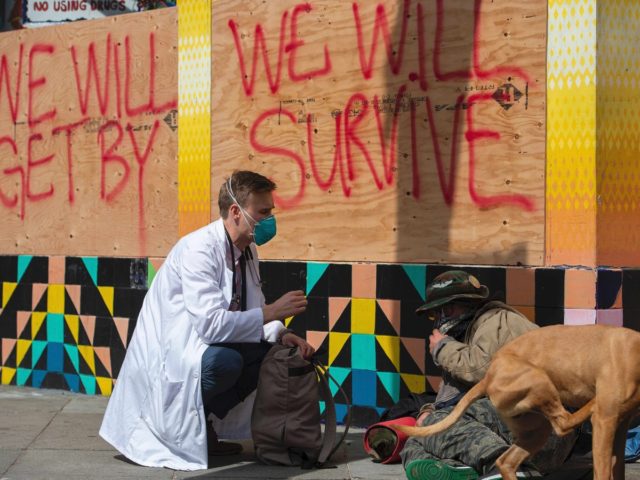San Francisco’s health department confirmed on Wednesday that it is providing drugs and alcohol to addicts to keep them from breaking quarantine.
The San Francisco Department of Public Health has sparked a citywide debate with a decision to provide various substances to addicts, in hopes of preventing unnecessary breaches of the city-wide lockdown. Approximately 270 members of San Francisco’s homeless population have been temporarily housed in private hotels, and the department’s “harm reduction” approach intends to keep them there.
“With regard to supporting people who are at risk, or who need to be in quarantine or isolation because they’re COVID positive, our focus needs to be on supporting them,” said Dr. Grant Colfax from San Francisco’s Department of Public Health. “Meeting them where they are so that they can be cared for in the most appropriate way. In the way that’s good for them and for our community.”
“They’re doing San Francisco a great service by staying inside,” department spokesperson Jenna Lane said, further describing measures to provide clinicians and social workers to anyone who would like to begin addiction treatments. “We’re saying, ‘We’re doing what we can to support you staying inside and not have to go out and get these things.’”
For alcohol specifically, Lane said rationing is being carefully supervised: “The DPH medical staff are calculating the minimum medically appropriate amounts of alcohol and distributing it with meals,” Lane said. “Alcohol withdrawal is the only one you can die from.”
Not everyone is supportive of the measure. “I have it from a pretty reliable source that weed and booze are being given to people in the hotels, and I have a real problem with that,” said Thomas Wolf, a case manager who works with addicts in San Francisco.
There’s an ethical issue there. Alcohol kills more people than any other drug. And I understand the risks of having people detox in hotel rooms, but my understanding is the people who are quarantined in the hotels can leave for 30 minutes for essential services.
“We want them to stay inside, but, man, you’ve got to draw the line somewhere and ask for more accountability,” said Wolf, who has lived experience as a former homeless addict himself. “Don’t be enabling people.”

COMMENTS
Please let us know if you're having issues with commenting.